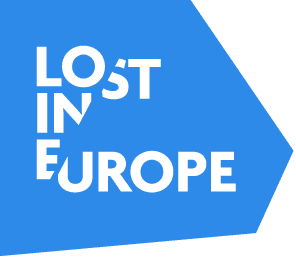A small tribute to Joke Elzinga, former location manager of the Valentijn Shelter in the Netherlands
"What if we put lots of girls in front of the parliament in The Hague, Dutch girls, to show: this many Nigerian girls have disappeared.” This idea was proposed by Joke Elzinga in an Argos broadcast last June. Elzinga was location manager at Valentijn, a shelter that was the very first to receive underaged, unaccompanied asylum seekers in the Netherlands. And which was also the first to be confronted with the disappearances of Nigerian girls.
Not doing it
When we started Lost in Europe, I said: “I'm not going to do a story about Nigerian girls. Everybody knows their story already. Everyone knows that these girls disappeared.” I was in high school when I first heard about Nigerian girls my age, who disappeared from shelters in the Netherlands. Ten years later - I was in Ghana, taking my first steps as a reporter - two colleagues from NRC Handelsblad were nominated for the prize for investigative journalism for their stories about Nigerian girls who disappeared from the Netherlands. They were found in brothels in Belgium and Italy, where they were forced to have sex to pay their debts to their traffickers. It was reported that sixty girls and women had disappeared and the police had carried out a large-scale investigation.
Ten years later, after our Lost in Europe broadcast about Vietnamese children who are disappearing, I received an e-mail: "Did you know the Vietnamese children disappear in exactly the same way as the Nigerian girls did back then?"
Important lesson
Five employees of the Valentijn Foundation told their story. One of them was location manager Joke Elzinga. She shared the most important lesson she learned: “Listen. What does this child have to say, what has it been through? What customs did they have in their culture? How did they grow up? How did their family survive?”
Elzinga told how she visited the children in the shelter before they went to sleep. “The stories they gradually started to tell, helped us understand what touched them. What trauma they had, how scared they were, how lonely they felt because they were no longer with their family… If you don’t get close to them, you could easily be wrong about that”, Elzinga explains. "Children can act normal and smile, but actually carry a lot of pain because they just miss their own family so much."
No more Joke Elzinga at the bedside
Then, the Valentine Foundation was cut back, because the Central Agency for the Reception of Asylum Seekers (COA) claimed they had learned enough to organize the reception of minors themselves. That would be cheaper too. So, no more Joke Elzinga by the bed at night.
This raised the question for us: how many Nigerian asylum seekers are disappearing from Dutch reception centers nowadays? It turned out to be 961 in 1 year. And no one had sounded the alarm.
Still hurt
As Lost in Europe, we are getting used to the fact that employees of the asylum shelter are not willing to talk to Lost in Europe about the disappearance of minor asylum seekers (or not allowed to, by their bosses). We hear all kinds of excuses: "The privacy of the missing children", "COA is responsible for the housing of asylum seekers, disappearances are not their responsibility.” COA makes a neat report if someone disappears, but knows nothing about detection: “that's what the police are for..."
When we asked Joke Elzinga if she wanted to participate in our broadcast about the disappearances, she also wanted to refuse at first. But, for the first time, we heard another reason: the disappearances still hurt her. What if this broadcast doesn't change anything?
Yet, she stuck out her neck again: “It's complicated, it's difficult, and everything that's difficult we prefer to look away from”, she said. “But I was involved, and I am involved. Because I have seen and experienced those girls. I held their hands, we all gathered around them. So, I know these girls. ”
And so Joke Elzinga told us what Lost in Europe really is about: it’s about children, not numbers.





